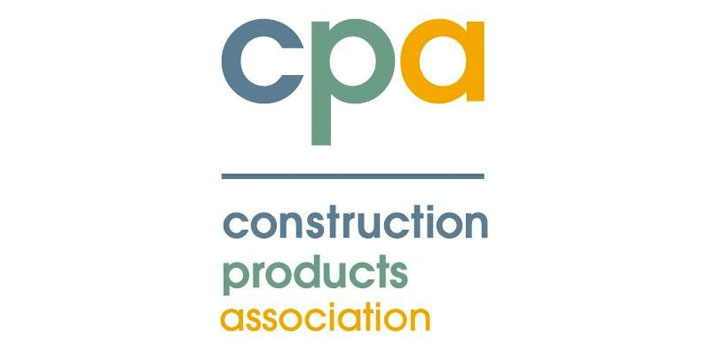
by Clair Mooney | 20 Dec, 2018 | Main News Feed
On 19 December 2018 the Government published the Immigration White Paper. This sets out the Government’s proposals for the design of a new immigration system. Key elements are:
- A skilled workers route open to all nationalities.
- Lowering of the skills threshold on the skilled workers route to include medium-skilled workers (to RQF 3-5, equivalent to A-Levels), with a retention of the £30K salary threshold, but businesses will be consulted on this – this is in parallel to the ongoing review of the Shortage Occupations List being conducted by the Migration Advisory Committee.
- No cap on numbers on the skilled workers route, meaning that business will be able to hire any suitable qualified migrant.
- The abolition of the resident labour market test.
- A new ‘transitional’ time limited route for temporary short-term workers of all skill levels, including seasonal low-skilled workers, which will allow workers to come to the UK for a maximum of 12 months, with a subsequent 12 month ‘cooling off’ period (again, these will be subject to consultation). However, this route will only be open to workers from a limited number of ‘low risk’ countries. This is set out on p16-17 of the White Paper; and
- An extension to the post-study period for all international students.
Iain McIlwee, FIS chief executive said ‘This new white paper on immigration, if adopted, will create real challenge for construction businesses. It just makes no sense to have arbitrary caps, we need to look at where the need is and salary/employment is only part of the workforce. The brief nod to construction in this document just shows how little our Government understand an industry that embraces around one in ten of the workforce in the UK. We are working through Build UK and the Construction Products Association and with a group of other construction bodies to respond to this document, we will be taking the fight to Westminster in the New Year’.
A link to the full document is available here.
Last chance to fill in the Construction Industry Immigration Survey. Closing date is Friday 21 December. Please spend 5 mins completing, we need this data to underpin concerns we are raising with Government around future immigration policy.

by Clair Mooney | 20 Dec, 2018 | Main News Feed
On 18 December 2018, legislation was laid before parliament necessary to ensure that the CPR regime continues to function effectively in the UK if we leave the EU with ‘no deal’. The Statutory Instrument delivers the policy approach set out in the Technical Notices published on 13 September 2018 – click here to see. Please note that this remains draft legislation until such time as it has passed al parliamentary procedures.
The UK approach is to maintain the requirements on manufacturers to declare the performance of their construction products in accordance with the existing harmonised European standards applicable on the day we exit the EU (29 March 2019). The key elements of the legislation are outlined below:
- Construction products already placed on the market can continue to circulate in the UK
- Existing European harmonised standards will become ‘UK designated standards’. Immediately we leave the EU both the EU hEN and the UK Designated standard (UKDS) will have the same text
- New UK standards will be designated by the Secretary of State
- Where a UK organisation has undertaken the third party conformity assessment process required under the UKDS, the manufacturer must affix the new UK conformity mark – this has still to be released
- Construction products that meet the hEN and have the CE mark affixed can continue to be placed on the UK market without the need for re-testing or additional marking. This arrangement will be for a time-limited period only and businesses will be given sufficient notice in advance of this period coming to an end. The end date for this period has not yet been fixed
- Where a manufacturer uses the self-declaration approach during the time-limited period they will have the choice to use either the UK or the CE mark
- For products that are not fully covered by a UK designated standard an optional UK Assessment Document (UKAD) and the issuing of a Technical Assessment will be undertaken by Technical Assessment Bodies established in the UK
- UK Notified Bodies will become UK Approved Bodies and be listed on a new UK database.
For more information please read the Explanatory Memorandum accessed here.
A copy of the draft Statutory Instrument Exiting the European Union, Building and Buildings Construction Market Standards can be viewed here.
In addition to the above, it is important that members also take on board the following issues if we leave the EU with ‘no deal’:
- Conformity assessment carried out by a UK Notified Body will no longer be recognised by the EU. They will have to be retested and re-marked by an EU recognised conformity assessment body. Alternatively, manufacturers can arrange for their files to be transferred to a EU recognised Notified Body thus enabling their certificates of conformity issued in the UK to continue to be valid
- The role of the UK Accreditation Service will not change

by Clair Mooney | 13 Dec, 2018 | Main News Feed
On the day of the announcement that the vote of no confidence in the Prime Minister has cast further uncertainty on Brexit, FIS has produced for its members a Preparing for Brexit Checklist. The checklist focusses on the questions that members need to start asking across the Product, Process and People elements of their business (the three pillars of the FIS Quality in Construction Strategy). Whilst not exhaustive it aims to help members understand the impact of Brexit and look at potential risk, challenges and opportunities.
Iain McIlwee, FIS CEO says “We are constantly hearing businesses need to start preparing for Brexit. In fairness Government has started to draw information together but the complexity and volume of information is overwhelming to most small and medium sized businesses.
The simple fact is preparing for Brexit is extremely difficult whilst Brexit is being kicked around like a political football in Westminster and regardless of the outcome or our own views, there remains so much uncertainty and cause for concern out here in the real world.
Instead of trying to predict outcomes, FIS have developed the “Preparing for Brexit Checklist” to help focus on the elements that will most likely impact on our members and help them to adopt a more risk-management based process. It is all about starting to have the right conversations with staff, sub-contractors, suppliers and customers and identifying where the impact may be. It is very much a live document and I’m sure our members will help us to shape it further with their questions, comments and views – at the end of the day we are a community and at times like these we need to draw together.”
For more information on the Preparing for Brexit Checklist visit our website at:
www.thefis.org/knowledge-hub/brexit-checklist/

by Clair Mooney | 10 Dec, 2018 | Main News Feed
New Government plans to crack down on late payments could see public sector outsourcers who take months to pay their own suppliers, being blocked from bidding for new contracts.
From next autumn procurement bosses will be expected to assess whether or not suppliers on contracts worth more than £5m per year have “robust measures” to ensure subcontractors are paid on time and are settling 95% of their invoices within 60 days of receipt.
Cabinet Office minister Oliver Dowden, said those who are found to be paying their suppliers later “could stop winning public contracts altogether – until they clean up their act”.
The move follows the collapse of Carillion, a major Government contractor that maintained schools, prisons and hospitals, in January, which has since been accused of hiding the true scale of its debts by using supply chain finance, as suppliers were forced to either use the scheme or wait 120 days to be paid.
FIS chief executive said “At the end of the day any focus on poor payment is welcome, but again whilst we support the approach the language is still a bit woolly, I’d be happier to see the word ‘could’ replaced with ‘will’. Payment remains a real cancer at the core of construction that undermines a healthy culture’.
Martin McTague of the Federation of Small Businesses said the new rules would “send a clear message that paying late is not okay.”
He added: “Measures to open up public procurement give tax payers and our public services access to the innovation and value small firms bring, as well as helping our economy.”
The new rule is the latest in a series of efforts by the Government to crack down on late payments, which are estimated by the FSB to have caused cash flow problems for more than one third of small firms.
Paul Uppal, a former Tory MP and small business owner, was appointed the first Small Business Commissioner last year with a specific remit to tackle the problem. In October ministers vowed to pay 90% of small central government suppliers within five days.
Mr Dowden said: “Companies providing crucial services to the public sector, like supporting prisons and delivering road infrastructure projects, must be paid on time.
“Paying invoices promptly is vital in providing healthy cash flow, particularly for smaller businesses who are the backbone of the UK economy, to help them survive and thrive.

by Clair Mooney | 30 Nov, 2018 | Main News Feed
FIS and nine other leading trade and professional bodies have come together to understand what skills are in greatest demand as the UK prepares its exit from the EU.
The survey, which will go out to more than 20,000 companies across the UK construction sector, will ask respondents to indicate which roles they are finding it difficult to recruit now and which they expect to be challenging post-Brexit.
The survey is supported by the following industry groups.
- Association for Consultancy & Engineering
- Build UK and member trade bodies
- Chartered Institute of Building
- Civil Engineering Contractors Association
- Construction Plant-hire Association
- Construction Products Association and member trade bodies
- Finishes and Interiors Sector (FIS)
- Federation of Master Builders
- Highways Term Maintenance Association
- National Federation of Builders
Companies that are not part of the above organisations are also invited to contribute to the research to ensure that the survey has as wide reach as possible. Evidence uncovered from the survey will be used to identify where the industry should be focussing its efforts to recruit new workers.
It will also be used to engage with the government and Migration Advisory Committee to support decision-making on appropriate migration for workers from the EU and rest of the world.
Mark Reynolds, Mace chief executive and skills lead for the Construction Leadership Council, said: “We know that our sector will need to recruit hundreds of thousands of new workers over the coming years. We want to ensure that this recruitment is supported with targeted actions by industry and government. The first step in achieving this is the development of a detailed picture of those occupations where we face the biggest challenge. I welcome the fact that the industry is unifying to develop this research and encourage all companies from across the industry to take part in the survey.”
Hannah Vickers, chief executive of the Association for Consultancy and Engineering, said: “With all the uncertainty around Brexit and its impact on skills, we need to make sure that our industry has a sound evidence base from which to argue, which is why I will be asking all our members to participate in the survey. We will need to come together in one voice and collectively make the case for construction to government, ensuring that any post-Brexit agreement secures the skills our sector needs now and into the future.”
Iain McIlwee, FIS chief executive said: “FIS is running one of the most ambitious skills programmes in construction, but we can’t do it alone, it is vital that the industry as a whole unites to focus on the skills we need now and for the future of the construction sector”.
Click here to take part in the industry skills shortages survey.

by Clair Mooney | 27 Nov, 2018 | Main News Feed
An outline of the Political Declaration setting out the draft framework for the future UK/EU relationship has been summarised covering those aspects which of specific interest to members of the Construction Products Association. Being a Political Declaration this carries no legal certainty. View the full document here, under the ‘Construction Products Association’ tab.

by Clair Mooney | 27 Nov, 2018 | Main News Feed
To enable a smooth transition for UK/EU activities in mid-process at the end of the Implementation Period, specific rules need putting in place to ensure the orderly continuation of activities between the two parties. This CPA information paper summarises some aspects of the Withdrawal Agreement of importance to CPA members. View the full document here, under the ‘Construction Products Association’ tab.

by Clair Mooney | 26 Nov, 2018 | Main News Feed
CITB is seeking influential industry representatives to apply to become a Trustee of its Board.
Construction skills are critical to the economy and this is a particularly important time to join the Board. Trustees have collective responsibility for CITB’s strategic direction, monitoring delivery and business performance, maintaining proper financial oversight and ensure effective Board governance. The Board is accountable to the Secretary of State for Education, the Charity Commission and more generally to Construction Industry stakeholders. Trustees will bring their specific knowledge and expertise to the Board. They seek to deliver the statutory functions of the Board in the best interests of the Construction Industry as a whole and must make decisions independent of any affiliation to their own business or sector interests.
The Board formally meets at least four times a year at locations throughout the UK. All Trustees are expected to undertake occasional UK travel to relevant stakeholder locations.
Full details on this vacancy can be found online at https://publicappointments.cabinetoffice.gov.uk/appointment/construction-industry-training-board-trustee/

by Clair Mooney | 21 Nov, 2018 | Main News Feed
Following the success of our third Scottish Awards Lunch in September, we’re delighted to be continuing with the Scottish Awards scheme and Lunch in 2019.
The awards aim to demonstrate the quality of work and range of projects that are carried out in Scotland. All FIS contractor members are eligible to enter and the deadline for entry is 28 February 2019. All projects must be in Scotland and completed between 1 January 2018 and 31 December 2018.
Entries will be visited by two FIS award judges, who will determine the winners in the seven contract categories. In addition, the awards include a category for Apprentice of the Year (who must be training in Scotland).
The winners of the awards will be announced and presented at our Scottish Awards Lunch which will take place on 27 September 2019 at the Principal Edinburgh Hotel, George Street, Edinburgh.
Award Categories
- Interior Fit-Out
- Partial Fit Out
- Drywall Construction
- Plasterwork (general and heritage)
- Suspended Ceilings
- Partitioning
- Judges’ Award (for projects which do not fit into categories A to E or are unusual and/or innovative)
- Apprentice of the Year (Apprentice must be undertaking their training in Scotland)

by Clair Mooney | 20 Nov, 2018 | Main News Feed
Last week, at World Skills UK Live, FIS launched its new work experience programme aimed at lining up suitable employers and FIS Approved Training Providers to help college learners get real industry experience – introducing BuildME.
It’s no trade secret that an aging workforce, widening skill gap and a decline in interest from younger generations are amongst the biggest challenges that face the construction industry today. The recent Construction Skills Network (CSN) report shows that the wider industry will need 36,000 new recruits per year from 2017 to 2021. In some specialist occupations the need for new workers remains acute, with wood trades and interior fit-out highlighted as areas of particular concern. There is also the ongoing challenge of replacing an ageing workforce, which will become more pressing if Brexit stems the flow of mainly younger workers from abroad.
The programme aims to match interested employers with suitable candidates and simplify and support the employer through the process. Focus is on basic construction, plastering, drylining, carpentry and joinery, interior systems and painting and decorating courses from Level 1 to 3, but FIS is committed to ensuring that good students from across construction find employment within the industry.
BuildME helps the employer (via a dedicated helpline and toolkit) to create a structured two-week work experience placement designed to give the candidate a real look into the industry, to see how their skills will be used, to work amongst their future colleagues and to meet with an employer who could serve as a first reference, or better still, a potential employer themselves. This work experience also has a whole range of benefits for an employer including the ability to trial a potential new hire or apprentice and create mentoring experiences for current staff.
Iain McIlwee FIS chief executive “We do need to do more to attract talent, but we also need to identify and eradicate waste – an obvious example being the huge proportion of those who start Level 1 Diploma’s in the construction sector that never work in industry. The beauty of this programme is its simplicity. The candidate gets some real-world experience and in the process, we help to remove the fear of the unknown and to dispel some of the many myths associated with working in construction.
From the employers’ side, who wouldn’t want to pick from the cream of the crop and to ensure talented individuals, worth hanging on to, are not allowed to drift out of the sector. By simply removing the time and complexity associated with creating work experience opportunities, BuildME opens the doors (literally!) for employers to address this wastage and ensure the monies and resources spent on new entrants in construction trades is a genuine investment for the whole economy.”
If you’d like to hear more about BuildME or for more information about any of the current programmes being led by the Skills Team, please email skills@thefis.org call 0121 707 0077 or visit www.thefis.org/skills-hub/sector-training/buildme/

by Clair Mooney | 16 Nov, 2018 | Main News Feed
The Minutes of the 2018 AGM which took place at the FIS Conference at Worsley Park Marriott Hotel can be downloaded here.

by Clair Mooney | 16 Nov, 2018 | Main News Feed
FIS launched its hugely successful #iBuiltThis2019 competition at the WorldSkills UK Live event at the NEC in Birmingham.
#iBuiltThis is a visual campaign, image led aiming to celebrate the skills, talent within the construction industry and showcase projects people have built in relation to the built environment. FIS chief executive Iain McIlwee said “we chose to launch the competition at WorldSkills UK Live because the event is all about helping young people go further, faster in their careers, gaining the skills that employers need most. Not to mention the Skills Show is the UK’s largest careers show, attracting over 72,000 visitors each year and engaging with colleges and young people here will help us to get some exciting entries for the 2019 competition”.
This simple competition is designed to promote careers in construction and get young people, the construction industry and the public to participate and show how proud they are of their contribution to the UK built environment in a fun, exciting and light-hearted way.
To encourage young people to get involved, the competition has been divided into three age groups with some fabulous prizes to be won: 13 and under (for the 2018 competition the prize was a family trip to Legoland with an overnight stay at Castle Hotel, 14-18 (an iPhone X) and 19 (a getaway for two adults in one of Canopy & Stars exclusive properties in the UK). We would like entrants to share a picture of themselves with an image of a completed project they have built, or helped to build and enter on the competition platform when it opens.
Encouraging photos of new buildings of any type, whether they’re made from Lego, Meccano, sand or even chocolate. Images of iconic buildings and breath taking fit-out and interiors will be used to inspire people to see construction as a career of choice. The entries received will be diverse in both built environment images and the roles involved in their construction and images will be used to educate new entrants afterwards.
The winners will be announced at the awards ceremony at UK Construction Week between 8–10 October 2019 by TV personality and architect George Clarke.
Nathan Garnett, Event Director of UK Construction Week said “it is the simplicity of this initiative that makes it so brilliant. Anybody can enter, it embraces all forms of social media and it reminds us of the simply joy in making stuff and at the same time how construction is building our future. There was a great crop of entries in 2018 across the different age contests from Lego builds to intricate brickwork and relaxation spaces innovatively designed and built. What better place to host this than at UK Construction Week, which is all about showcasing this brilliant industry. I was particularly delighted to see so many of the 2018 competition finalists and winners attend with their friends and family so they got to see some of the innovation and progressive thinking that is driving our sector forwards.”
To find out more on how you can partner with us email skills@thefis.org or visit our website at: https://www.thefis.org/skills-hub/i-built-this-2019/

by Clair Mooney | 16 Nov, 2018 | Main News Feed
FIS will be exhibiting at the Quality in Construction Summit – book your place with special offer.
FIS is pleased to announce that we will be exhibiting at the Quality in Construction Summit on the 27 November 2018 in Manchester. Iain McIlwee will be speaking about some of the vital ingredients of constructing safer buildings and practical steps that contractors can implement to drive improvement. This is a simple, structured approach to managing compliance and competency issues through a focus on Product, Process and People and touch on some of the issues that the Finishes and Interiors Sector would like to consign to Room 101.
The event is aimed at professionals who have a quality-related remit within the construction sector, at a strategic or operational level. It will be an opportunity for them to network, learn, share and develop ideas to improve quality levels within their organisations and sector.
We have secured a special offer for our members, insert the code FIS99 for £99 +VAT tickets. Book your place using this link: https://bit.ly/2BXSArC

by Clair Mooney | 15 Nov, 2018 | Main News Feed
FIS has added Fire Door Installation to its directory search, so if you install Fire Doors, let the office know so we can update your records.
35% of all FIS website visitors use the membership directory, so it’s important to check your company details and offering are up to date. Contact the office on 0121 707 0077 or email info@thefis.org to update your details.

by Clair Mooney | 15 Nov, 2018 | Main News Feed
FIS members are invited to attend Croner’s Employment Law and Health & Safety Seminars free to charge. Hear from expert speakers, who will share their insights into the employment law and health and safety trends that will affect your organisation in the near future. Seminars are being held on:
27 November from 10:00am to 3:00pm – Newcastle
7 December from 10:00am to 13:00pm – Bristol
13 December from 10:00am to 13:00pm – Hinckley
Register directly with Croner. Full details are available here..

by Clair Mooney | 12 Nov, 2018 | Main News Feed
A construction skills card fraudster has been jailed for more than three years following a police investigation which saw him charged under Section 9 of the Fraud Act 2006 for the production and sale of fake documents.
Online trader Andrew Weeks was caught following an investigation by Warwickshire County Council Trading Standards. During the investigation it was discovered that Mr Weeks was manufacturing construction industry skill cards at his printing firm (Nuneaton Print) and selling them via his website. Mr Weeks pleading guilty to the manufacture of fake documents and was sentenced on 19 October at Warwick Crown Court.
The investigation was supported with information from the Construction Industry Training Board (CITB) and a number of card schemes including the Construction Skills Certification Scheme (CSCS).
Graham Wren, Chief Executive at CSCS said: “This is another example of the industry working together to tackle card fraud. CSCS will always support the authorities to identify and act against those attempting to deceive construction employers. This case also highlights the need for thorough card checks, ideally electronically, to ensure construction workers are who they say they are and have the correct qualifications for the job they do on site.”
Mr Weeks was also sued by CSCS for copyright infringement and ordered to pay damages of £6,000.
Ian Sidney, Fraud Manager at CITB said: “This sentence shows just how serious construction card fraud is and the lengths that CITB and the whole industry will go to in order to stamp it out. The use of fake cards could easily lead to accidents, injuries or even fatalities where contractors do not have the required skills, training or qualifications. Employers must remain vigilant when checking workers’ documentation and keep an eye out for any suspicious activity.”
What to do if you spot a fraudulent card
Employers are urged to conduct regular checks on cards. If you think you know someone using a fraudulent card you should:
- Retain the card if possible
- Make photocopies of front and back
- Record cardholder’s name and address
- Ask the cardholder where the card was obtained from
- Call the local police and report the matter
- Refuse access to site (subject to company rules)
- Forward copies of all evidence to CITB Quality Assurance Team, Building 16, Bircham Newton, King’s Lynn, PE31 6RH, marked ‘SUSPECTED FRAUDULENT CARD’ with details of the crime number given by local police.
- You can also email Report.it@citb.co.uk .

by Clair Mooney | 9 Nov, 2018 | Main News Feed
The construction industry experienced modest growth in the third quarter of 2018, following a weather-related boost to activity in Q2, according to the latest quarterly CPA survey of product manufacturers, contractors, civil engineers and SME builders.
Read the full details in this week’s CPA weekly notes.

by Clair Mooney | 6 Nov, 2018 | Main News Feed
The latest CPA Trade Survey shows that during Q3, 27% of product manufacturers, 25% of main contractors, 16% of SME builders and 10% of civil engineering firms reported an increase in activity. However, on balance, 80% of main contractors reported a rise in materials and labour costs, 90% of product manufacturers reported an increase in fuel costs and cost rises for civil engineering contractors reached a three-year high.
CPA Trade Survey October 2018

by Clair Mooney | 1 Nov, 2018 | Main News Feed
FIS will today (1 November) launch its 2019 sector-wide digital Training Needs Analysis (TNA).
We urge all FIS members to complete the TNA and submit by 21 February 2019. Submissions will provide evidence for the whitepaper on the overall skills need and workforce sustainability of our sector. All those completing the TNA will automatically receive a digital copy.
The data obtained will allow us to make year-on-year comparisons from three years of TNA results. This sector engagement process will continue up to 2020.
Led by FIS Sector Skills Engagement Manager Amanda Scott, the result allows us to accurately forecast the demand needs for skills and technical qualifications required to meet your contractual obligations over the next financial year. “To ensure we meet our membership’s reported demand and engage our supply chain of approved training providers and partners to fill demand, your response is critical.”
Amanda and the skills team will be engaging with all members, offering advice and completion support. Email amandascott@thefis.org
The infographic below highlights some of the key analysis findings of the TNA 2018

General Information
• Ideally, this survey should be completed by the dedicated person in your organisation responsible for training and development planning, such as a training officer or human resources officer
• All responses for future forecasts should be accurate based on the date of return
• Your TNA returns will be held in confidence and in line with the FIS privacy and data protection policy
• The TNA has an inbuilt save function. You will be asked for your email address and a unique link will be sent to your address returning you to the last question you worked on
Should you require any assistance in completing any section(s) please contact the Project Manager Amanda Scott by email: amandascott@thefis.org where individual appointments can be booked.

by Clair Mooney | 25 Oct, 2018 | Main News Feed
FIS launched its #BuildersBrewcampaign at UK Construction Week on 10 October to coincide with World Mental Health day. The campaign is designed to raise awareness of mental health and wellbeing in the construction industry.
Recent reports from The Office of National Statistics (ONS) show that between 2010 and 2015, more than 1,400 construction workers in the UK took their own lives, making male construction workers the demographic most at risk of suicide in the UK. Further research shows that mental health issues accounted for a third of the construction industry’s absences and that at any one time around 350,000 workers could be suffering from mental health problems.
The #BuildersBrew campaign encourages people not to bottle-up, but to open-up and talk about issues that are causing, stress, anxiety or depression with colleagues over a mug of tea or coffee. The campaign also reminds us all to be vigilant of the signs in our colleagues and offer support where we can. In the run up to UK Construction Week, a social media campaign was run on Twitter and Instagram platforms asking people to share images of their #BuildersBrew, a photo of themselves with their mug/coffee talking about mental health in all the different environments to visually show the support people have given for mental health. An image gallery was created on the FIS stand at UK Construction Week, which received a lot of attention and support.
In addition, FIS teamed up with the Digital College and UK Construction Week to offer a free course; An Awareness of Mental Wellbeing in the Workplace course at a breakfast briefing at UK Construction Week which was attended by FIS members and partners.
FIS CEO Iain McIlwee was interviewed about this issue by FIX radio at the show which was broadcast live on air at the exhibition and said “raising awareness of mental health and taking positive actions to improve health and wellbeing in construction is imperative. We need to move beyond the stereotypes of the building industry and wake up to the reality that people working in construction are three times more likely to take their own life than those in other professions. Mental health issues impact all of us all at some point in our lives, we often like to think we are bullet proof, but there are times when all of us have our resilience tested and we need help from people around us.
Through #BuildersBrew we are encouraging people to take positive, proactive action to support each other and drive the message home that its acceptable to talk about these issues and imperative that we put an arm around the shoulder of colleagues that may be struggling. Far from being a sign of weakness, talking openly is a sign of strength and something we should be applauding and encouraging.”
Throughout the course of three days FIS and Digital College sold #BuildersBrew travel mugs raising money for the Lighthouse Club charity which specialises in providing financial and emotional support to the construction community and their families. These mugs can still be purchased via www.thefis.org/about-us/builders-brew/
David Stephenson, Founder and MD of Digital College said “it was been great collaborating with FIS on the #BuildersBrew campaign and delivering the mental health awareness course at UK Construction Week. The Introduction to Mental Health and Wellbeing course is an ideal way to raise awareness at all levels in the construction industry, we want to make people aware that it only takes one hour of your time to complete the course online, making learning very easy, accessible and affordable for your organisation”.
The #BuildersBrew campaign is an ongoing initiative and FIS would like people to submit images of themselves with their mugs of tea and coffee to support and post to @fisorg on our Instagram and Twitter platforms.


















